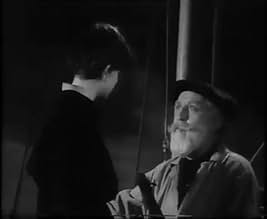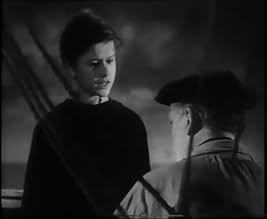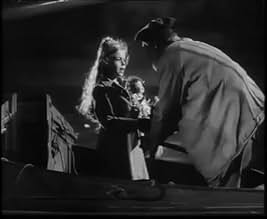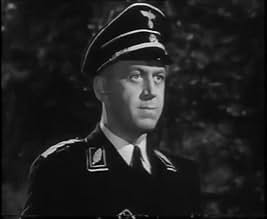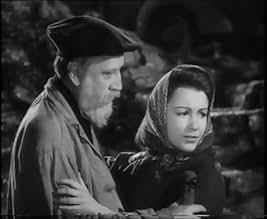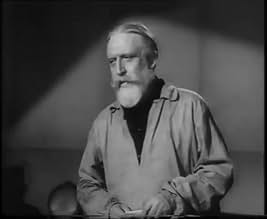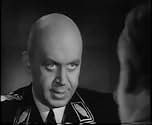Aggiungi una trama nella tua linguaWhile traveling in France during the Nazi invasion of 1940, an Englishman is entrusted with the care of a group of refugee children.While traveling in France during the Nazi invasion of 1940, an Englishman is entrusted with the care of a group of refugee children.While traveling in France during the Nazi invasion of 1940, an Englishman is entrusted with the care of a group of refugee children.
- Regia
- Sceneggiatura
- Star
- Candidato a 3 Oscar
- 4 vittorie e 3 candidature totali
Rudolph Anders
- Lieutenant
- (as Robert O.Davis)
Recensioni in evidenza
I read the novel twice many years ago and found it perhaps Nevil Shute's best story, and he wrote many, all outstanding. Still I am tempted to hint at the possibility that the film excels the book, much because of Monty Woolley's rendering of the grumpy old Englishman sick of everything who finds himself stranded in France by the war after Dunkirk and has to accept helping two children to England although he hates children. His long difficult odyssey through war-harried France to somehow reach England with constantly more orphaned children on his hands turns him into another and slightly different man, and the realism depicting this is what makes the film so impressing still today after 70 years for its more than just convincing character. It was made before any of the turning points of the war in 1942 after Pearl Harbour and the fall of Singapore while the Germans were still pounding Moscow and besieging Leningrad, in brief, when the war was at its grimmest. Nevil Shute's story is about humanity in the depth of the despair of this world crisis, which the film admirably conveys, underlining the realism. Monty Woolley, however, is finally matched by Otto Preminger as the German officer, who represents the final conversion to humanity and couldn't make it better as a perfectly brutal and revolting officer who finally has to fall to his own humanity. It's one of the greatest stories told from the second world war, and the film honours it. Strange though that this very important and wonderful film should be so hard to find on internet. A remake was made for TV in 1989 with Peter O'Toole which also pays credit to the story, such a story can only be told well, but that film can't be found at all.
Monty Woolley is in France, fly fishing, when the radio announces the English evacuation of Dunkirk. Woolley had come to forget; his son, a flier in the RAF, is dead, and his attempts to serve in some capacity have been turned down. So here he is, occupying himself. But the other guest, an Englishwoman, at the inn he is staying at has to go elsewhere. She entrusts Woolley with her two children to get them back to England safely. They start off, but Germans slow them down. Somehow, they pick up other children to get to safety, and Ann Baxter, and even Dalio. But when they make it to the Channel, they are captured by Otto Preminger playing one of his Nasty Nazis, who is convinced that Woolley is an English spy using the children as a cover.
Is this a serious movie, or a fable? Or is there necessarily a difference between the two? Wooley gives a performance that goes from guarded and grumpy to open as he comes to realize his service is to take care of the children he has, largely unwittingly, been charged with. When Preminger prods him on what he means to do with this gaggle of children, he expounds on his decision to send them to connections in America. But had he thought this out earlier, or has it just occurred to him? Is this a well conceived idea, or just more English muddling through? I like to believe the latter, but would it make any difference to this tale of decency under threat?
With Roddy McDowall, J. Carrol Naish, Jill Esmond, and Peggy Ann Garner.
Is this a serious movie, or a fable? Or is there necessarily a difference between the two? Wooley gives a performance that goes from guarded and grumpy to open as he comes to realize his service is to take care of the children he has, largely unwittingly, been charged with. When Preminger prods him on what he means to do with this gaggle of children, he expounds on his decision to send them to connections in America. But had he thought this out earlier, or has it just occurred to him? Is this a well conceived idea, or just more English muddling through? I like to believe the latter, but would it make any difference to this tale of decency under threat?
With Roddy McDowall, J. Carrol Naish, Jill Esmond, and Peggy Ann Garner.
Although not action packed this movie moves along at a good pace with plenty of twist and turns and a good deal of wit. When Howard, played by Monty Woolley, is fishing on his holiday in Eastern France he wants nothing more than peace and quiet. When the Germans invade during World War II, he escapes with two and finally a hodge podge of children, and peace and quiet are the last thing he will get. They must trek to saftey and outwit the Germans. Woolley is perfect as the gruff elderly man than seems likely to have been a strict disciplinarian. The kids will melt anyones heart including his. This movie is a classic and it is hard to believe it isn't even available on VHS let alone DVD.
Curmudgeonly Briton "Howard" (Monty Woolley) is doing his best impersonation of "Rudolf Rassendyl", fishing peaceably and minding his own business, when the Nazis decide to invade France. He has to get home and is persuaded to take the two "Cavanaugh" children to safety with him. There's "Ronnie" (Roddy McDowall) and his sister "Sheila" (Peggy Ann Garner) who manage to irritate their new guardian just by being there, but they are just the start of his problems as they act like a magnet for other endangered children. Before he knows it, it's like he has his own herd of cats to try and smuggle out from under the nose of the menacing "Maj. Diessen" (Otto Preminger). Terrified of being heard to speak English, he and his charges gradually learn a little about themselves and this erstwhile selfish gent starts to demonstrate an whole new set of human traits hitherto a mystery to himself. Can he manage to get them, and himself, to safety though? It's a showcase for an on-form Woolley that features a few brief appearances from Anne Baxter and J. Carrol Naish as the adventure builds slowly but quite menacingly to a denouement that has something of last year's "Pimpernel Smith" to it. McDowall's is an engaging young character and the story exudes quite a healthy degree of sentiment-free mischievous charm as Woolley delivers the goods once again.
10gsloring
I happened to be only 9 yrs old when I saw this movie for the first and only time in 1967 in Novato, CA ....Even I could understand it at that age...The 2 scenes I remember best were when Woolley's character:
1. ...Asked the Nazi officer if they've captured "him yet". The officer asks: "Who?", and Woolley replies firmly: "Hitler". Officer replies back in the negative, then Woolley defiantly but bravely yells back: ''BAHH!", then strides out of the officer's room.
2...Is brought another stray child to his group by someone unknown. A woman in Woolley's group tries to speak to the child to find out more. The child replies in an unknown language. Then the womans exclaims: "That sounds like Dutch!" (The reason I remember this so much is at age 9 I was shocked to see a war scene of an orphaned child speaking a foreign language. Where were the parents?, I thought. They must have been killed...)
Lo sapevi?
- QuizThe original fairy tale was based on the disappearance of the children of the Dutch - not German - village of Hamelin. Although at the time they were thought to have vanished magically, it is now believed that the children left to join one of the Children's Crusades and were taken into slavery.
- BlooperThe seven-year-old German girl near the very end of the movie (at c.1:18 and at c.1:21) speaks German with a distinct American accent.
- Citazioni
Howard: I have two small children!
Railroad official: At your age, monsieur, that is undoubtedly magnificent!
- ConnessioniFeatured in Minute Movie Masterpieces (1989)
I più visti
Accedi per valutare e creare un elenco di titoli salvati per ottenere consigli personalizzati
- How long is The Pied Piper?Powered by Alexa
Dettagli
- Data di uscita
- Paese di origine
- Lingue
- Celebre anche come
- Mannen med sälgpiporna
- Luoghi delle riprese
- Azienda produttrice
- Vedi altri crediti dell’azienda su IMDbPro
- Tempo di esecuzione
- 1h 27min(87 min)
- Colore
- Proporzioni
- 1.37 : 1
Contribuisci a questa pagina
Suggerisci una modifica o aggiungi i contenuti mancanti

